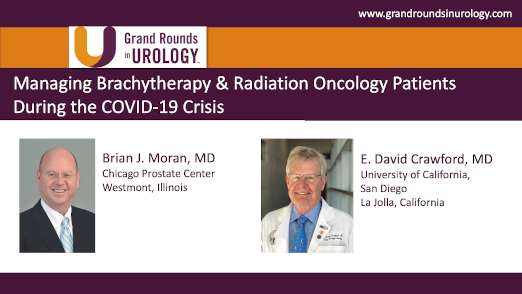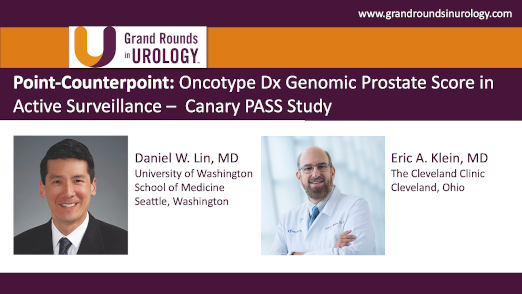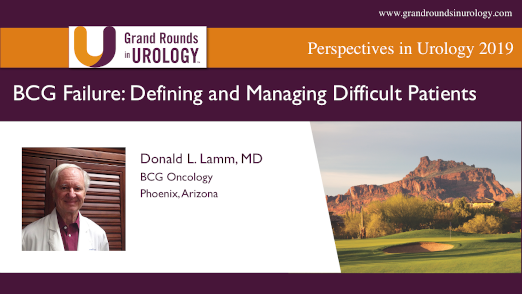Managing Brachytherapy & Radiation Oncology Patients During the COVID-19 Crisis
Brian J. Moran, MD, Medical Director of the Chicago Prostate Cancer Center, discusses the impact of the COVID-19 pandemic on treatment for both low- and high-risk prostate cancer patients within their clinic. He explains how the pandemic has caused an increased patient interest in brachytherapy over external beam radiation due to shorter treatment times, that the American Brachytherapy Society advises that low-risk patients receive a delay in treatment so patients with high-risk, unfavorable cancers can be treated first, and how the clinic is implementing telemedicine and social-distancing practices in waiting rooms to reduce COVID-19 exposure.
Read More



